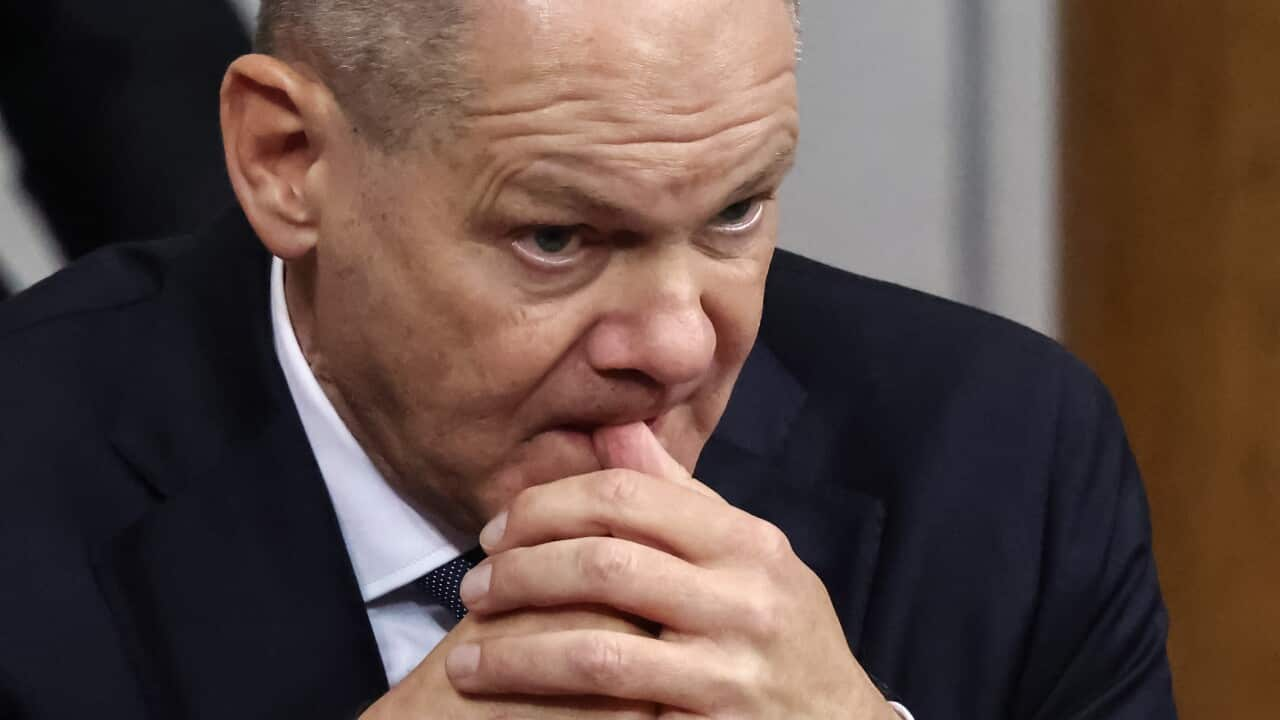German Chancellor Olaf Scholz lost a confidence vote on Monday, spelling the effective end of his troubled government and putting Europe's biggest economy on the path to elections early next year.
The bigger picture: Rising energy prices, high inflation, a decrease in exports and the ailing car industry, struggling with increasing Chinese competition and the transition to electric vehicles, have all contributed to stagnating economic growth.
The key quote: Addressing parliament ahead of the vote on Monday, Scholz said there were important political issues facing Germany, including long-overdue investments in its struggling economy, that required the public's input.
"This decision is so fundamental that it must be taken by the sovereign itself, by the voters." — German Chancellor Olaf Scholz.

Chairman of the Christian Social Union Alexander Dobrindt (left) and leader of Germany's Christian Democratic Union Friedrich Merz speak to the media after the no-confidence vote. Source: AFP / Ralf Hirschberger / AFP via Getty Images
What happens next: Now that MPs have withdrawn their confidence in Scholz's government, he will immediately ask President Frank-Walter Steinmeier to dissolve parliament and call for early elections, seven months ahead of schedule.

